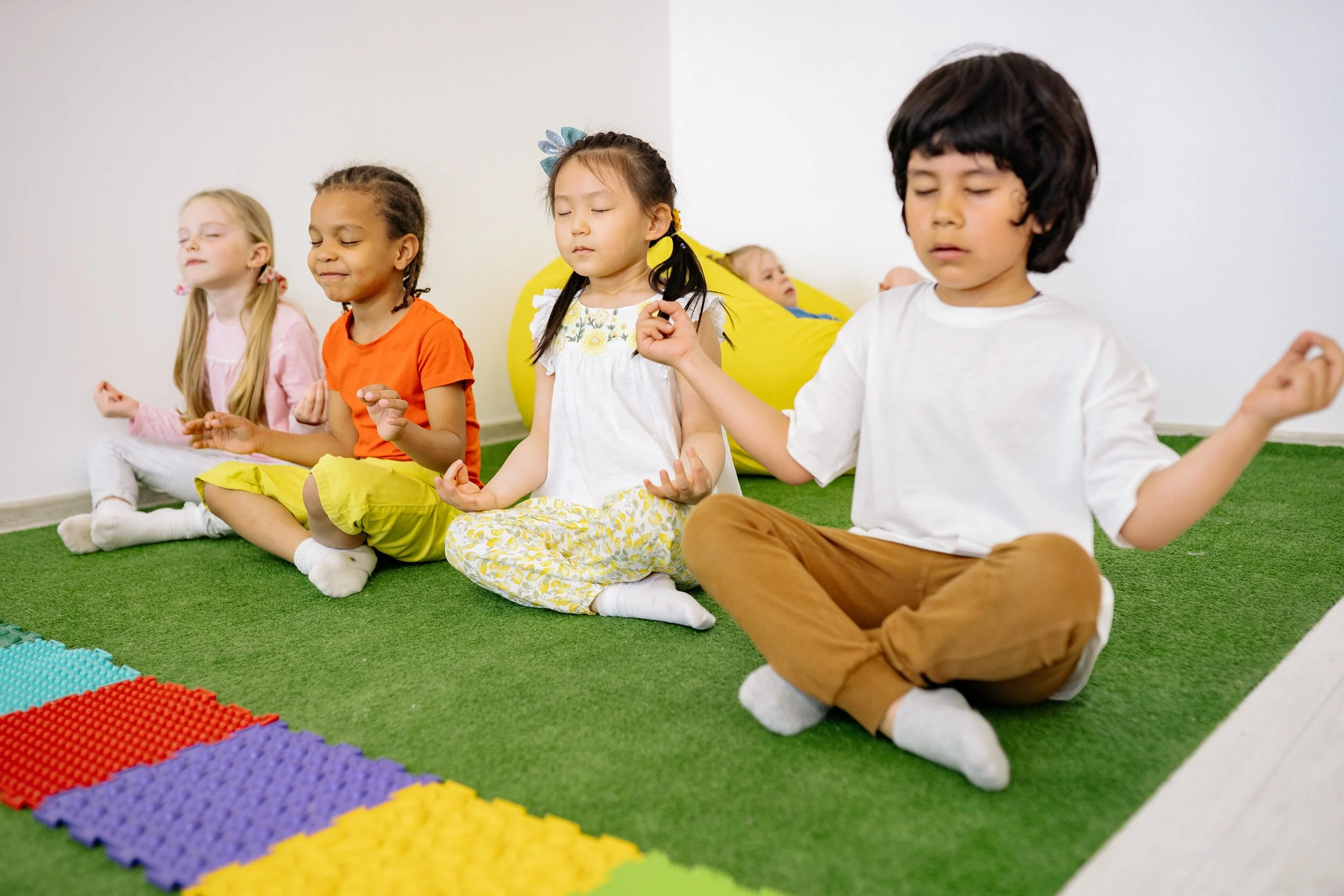It’s no secret that we live in a world where being overworked and over-scheduled is worn like a badge of honor. Unfortunately, that badge weighs a proverbial TON and our kids are being held to the same standards. Between busy parents, school, homework, after-school programs, sports practice, music lessons, school clubs, video games, and hanging out with friends, it’s difficult to carve out time for kids to rest! The pace of the world is bustling, and your kids are hustling right along with it, never pausing long enough to learn the skills to know how to regulate big emotions or live a more intentional life.
As adults, there comes a time, sometimes in college, sometimes not until much later, when we learn the value of a quiet moment, the warmth of a deep, cleansing breath, and the circulation that comes from a lengthening stretch. But why wait until adulthood to learn the benefits of Yoga?
Yoga is a microcosm of the physical, mental, and spiritual practices essential to establishing a foundation for mindfulness, emotional regulation, and overall body strength and wellness. Not to mention, the simple practice of yoga can help to counter the pressures of “keeping up” with the rat race of the world.
Here are just some of the ways yoga benefits children!
1. Builds Emotional Regulation Skills:
Children who aren’t taught how to properly regulate and express their emotions often turn to yelling, crying, or throwing tantrums. Through breathing techniques, introspection, and an emphasis on learning about your inner feelings, yoga helps children calm their bodies and their minds. Kids who practice yoga can tune into the physical sensations in their bodies that are tied to emotion, and use their breath and movement to address any uncomfortable emotions before they get out of control. With time, children who practice yoga are able to apply the skills they learn to everyday life in order to react to any situation in a calm and regulated way.
2. Develops Spatial Awareness and Visual Skills:
Not only does yoga increase core strength and posture, it also teaches children to be aware of their bodies and their space, and remain in control of themselves and their movements. Yoga teaches children to be present in the moment and to focus on what they are doing (a skill that many adults struggle with)! With a greater sense of self-awareness, and a physical outlet for self-expression, children can become more disciplined and their impulsive behavior will be minimized.
3. Reduces Anxiety:
The breathing exercises, relaxation techniques, mindfulness skills, and socio-emotional skills learned in yoga naturally reduce the stress hormones released in the brain, which in turn, reduce anxiety. Children who practice yoga gain self-acceptance, resilience, and strengthen their mental and physical flexibility. These traits inherently act as healthy protective boundaries from depression, anxiety, and other mental health concerns that manifest in childhood.
4. Develops Positive Social Skills:
When practiced as a group, children in yoga classes learn to respect everyone’s individual ability and pace. The focus on self-acceptance in yoga allows children to see strength in themselves and others, and helps to increase positive interactions with other people. Because there is no competition in yoga, children are allowed and even encouraged to have fun with their friends in a space that embodies mutual respect and love.
5. Built In Brain Breaks:
With so many things to learn and see and do, children’s little brains are constantly stimulated (not to mention, growing)! Children need brain breaks in their days just as much as adults do. Yoga encourages silent meditation throughout each pose, allowing children to appreciate the stillness of body and mind, and to relax from the hurry and worry of the day.
The benefits of yoga will stay with them for a lifetime. Children who regularly practice yoga are able to take the skills they learned home to share with their families and friends, and to use in a variety of situations. Calm, regulated children who practice yoga are more in control of their bodies, feelings, and minds. This very intentional offering will set your child up to take mindful care of themselves in childhood and throughout their lives. Young Yogis is a great place to start that practice!
Authored By: Eliana Gross, APC
If you or your child is interested in making Yoga a regular practice, click on the button below!
